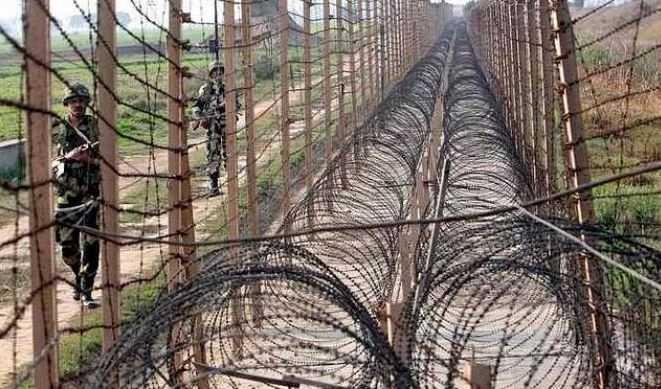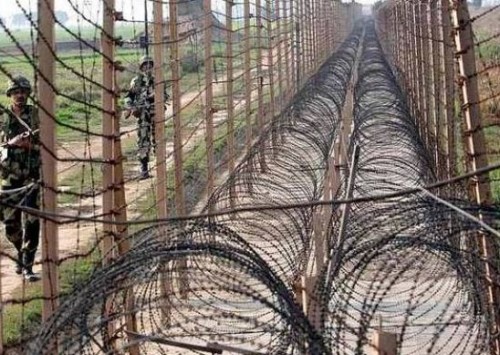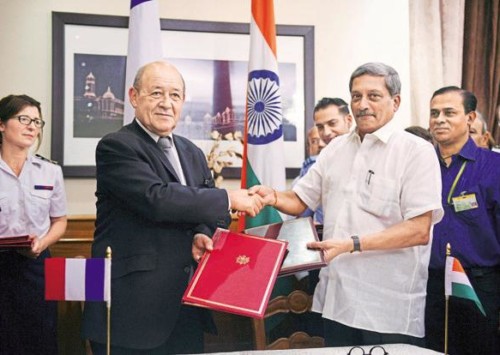India conducts ‘surgical strikes’ across the Line of Control
Biz@India

After the attack on the Indian army base of Uri in Kashmir, on September 18, where 19 Indian soldiers were killed, New Delhi announced that it conducted ‘surgical strikes’ on Thursday morning against rebel camps along the Line of Control (LoC) between India and Pakistan, in the disputed region of Kashmir. After a diplomatic push to isolate Pakistan, this has been the largest Indian military response of this kind in decades and it reflects a tough new stance taken by the Narendra Modi government on this issue. The Indian public’s opinion as a whole called for a strong response, while avoiding the risk of escalation with neighbouring Pakistan, also a nuclear power like India.
The Indian military’s response was carefully and secretly planned. After the attack on the Indian base of Uri in Kashmir, the Indian government led a diplomatic offensive against Pakistan, while studying a calibrated military response on as early as September 19.
“Based on very specific and credible information which we received yesterday that some terrorist teams had positioned itself along the line of control, the Army carried out surgical strikes last night at these launch pads. The operations were focused to ensure that these terrorists do not succeed in endangering lives of citizens in our country. During the counter-terrorist operations, significant casualties have been caused to the terrorists and those who were trying to support them. The operations have since ceased,” said Director General of Military Operations (DGMO) Lt. Gen Ranbir Singh, at a press conference in New Delhi.
Islamabad said that two Pakistani soldiers were killed along the Line of Control, adding in a statement that Pakistani troops “befittingly responded to unprovoked firing by the Indian forces” along the LoC, minimizing at the same time the extent of the Indian strikes.
Nineteen Indian soldiers lost their lives in the assault on the Uri base led by four militants of jihadist group Jaish-e-Mohammed, based in Pakistan. This attack, the deadliest in the region in more than a decade, triggered strong emotions in the Indian public and political circles, in the context of strong persisting tensions between separatists, young protesters and security forces in Indian Kashmir and repeated incursions on India’s territory led by militants based in Pakistan. One attack, conducted on January 2, 2016 in the Indian base of Pathankot, in Jammu and Kashmir, where at least four assailants, one civilian and seven Indian security personnel were killed, had already caused an outrage in India.
Indian public opinion shows its solidarity
Faced again with a heated public reaction and critics from the Opposition, notably the Congress Party, which has since supported the strikes in the name of national unity, the Modi government was under pressure to react swiftly after the attack on the Uri base. New Delhi regularly accuses Islamabad of covertly providing logistical support to infiltrators and armed rebel movements in Indian Kashmir. For its part, Pakistan denies such allegations.
Before this military response, New Delhi had triggered a major diplomatic offensive to isolate Pakistan internationally. India had announced that it would not attend the regional summit of the SAARC (South Asian Association for Regional Cooperation), which lead to the withdrawal of Bangladesh, Afghanistan and Bhutan as well from the scheduled summit. Indian Minister of External Affairs, Sushma Swaraj, too had strongly condemned the attitude of Pakistan and the terrorist attacks, on September 25, in the UN General Assembly in New York.
New Delhi and Islamabad have maintained a claim over Kashmir since the painful 1947 Partition of the then undivided India. Since then, conflicts along the LOC have left tens of thousands, mostly civilians, dead.
This is the first time since 1971 that India openly publicised an operation of this magnitude on the other side of the line, although exchanges of fire and skirmishes have been rather commonplace in the past and the two countries have been involved in sporadic wars.
Big Chancelleries, including Beijing and Washington, have called India and Pakistan to maintain peace. Fear of an escalation is never far between India and Pakistan, the two big nuclear powers of South Asia and both ramping up full steam their military equipment. India has notably just signed the final agreement for the procurement of 36 Rafale fighter jets from French company Dassault Aviation French and develops regularly its strategic partnership with France, from counter-terrorism cooperation to increasingly frequent and developed joint military exercises.
India is also becoming an increasingly close strategic and military partner of the United States, which also has strong military ties with Pakistan. India has further developed recent agreements to facilitate US access to some Indian bases. This irritated Beijing, a supporter of Pakistan, on the complex chessboard of regional diplomacy, where tensions and cross-border claims, including also those between China and India, remain high.











